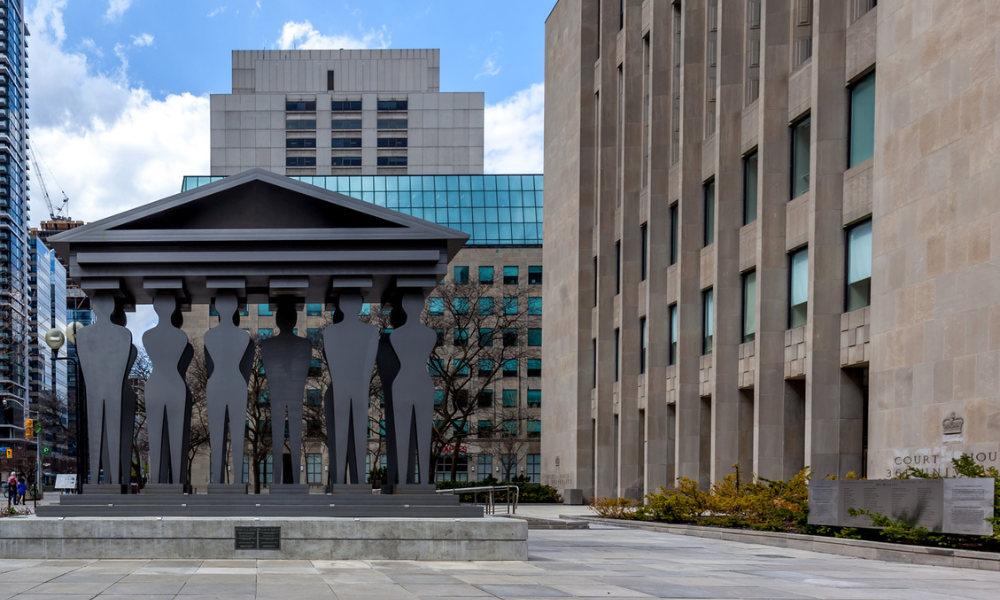
Exploiting systemic delays as a strategy ultimately harms everyone

I recently spoke with a criminal lawyer friend the other day about the state of the civil list. When she asked how bad court delays were, I asked her to guess how long it would take to schedule a short motion in Superior Court in Toronto. She guessed May. I told her she had the correct month, but her jaw hit the floor when I clarified that it was May 2025.
It is no secret that many regions in Ontario are overcome with unworkable court backlogs. The delays plaguing the system are more than a mere inconvenience; they significantly hinder litigators’ ability to work effectively, leading to lost faith in the legal system and clients doubting our competence.
But perhaps the most worrying trend about this situation was highlighted in a report from The Advocates Society: lawsuits are becoming gruelling endurance tests. The inability to access courts leads to more procedural steps, with litigants using delay to exhaust their opponents and force them to abandon meritorious claims.
Until the system improves through an overhaul or increased judicial resources, it is more important than ever for us litigators to act with reason and professionalism. That means doing everything possible to resolve our issues and reduce the burden on the overly-strained justice system.
Justice Koehnen’s recent ruling in Think Research Corporation v. N & M Medical Enterprises, 2023 ONSC 6910, emphasizes this need. The judge pointed to a vicious cycle where “delay begets delay,” noting that parties deliberately prolong litigation by bringing motions and seeking other court appearances, exacerbating the system’s backlog.
The message from this decision is clear: each hearing we book takes a valuable time slot, worsening the backlog. In the end, this makes it harder to book hearing dates when we need them.
We would be wise to take these words seriously, especially in highly affected regions like Toronto. While we may sometimes opt to delay proceedings, we must recognize that exploiting these systemic delays as a strategy ultimately harms everyone, including our clients.
Instead, we should do everything we can to help ease this situation by acting reasonably in litigation and managing client expectations. This means avoiding unnecessary steps like withholding documents or insisting on unfeasible timelines. Conversely, we should think twice before scheduling court dates to resolve these issues.
We should also be cautious about setting court dates for minor issues. Instead, communicate your stance to opposing counsel and proceed without court involvement whenever possible. While relying on courts is ideal, we must adapt to current limitations.
If we find ourselves in a situation that cannot be resolved without court intervention, another promising avenue worth pursuing is to remit the matter to a case conference. Justice Koehnen also advocated for this approach in his decision to clear a logjam without needing a full hearing. He clarified that while case conferences can’t replace hearings, they are helpful for dispute resolution, especially for narrow issues.
Lastly, we must be mindful that several recent rulings reflect a judiciary aware and disapproving of litigants exploiting systematic delays. Therefore, if we do not act cooperatively and instead schedule a hearing for an unnecessary issue, it will be viewed unfavourably when it finally gets heard and could lead to an adverse cost award. Our clients will not benefit from that.
Ultimately, exploiting the overburdened system will only harm us and our clients. Our profession is adversarial, but we are in this together and are responsible for making the system work as efficiently as possible. We should keep this in mind next time we opt to book a court date.